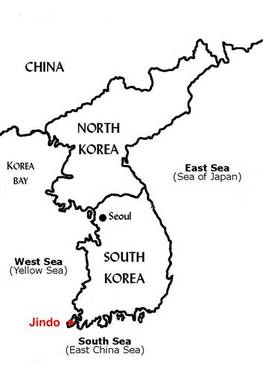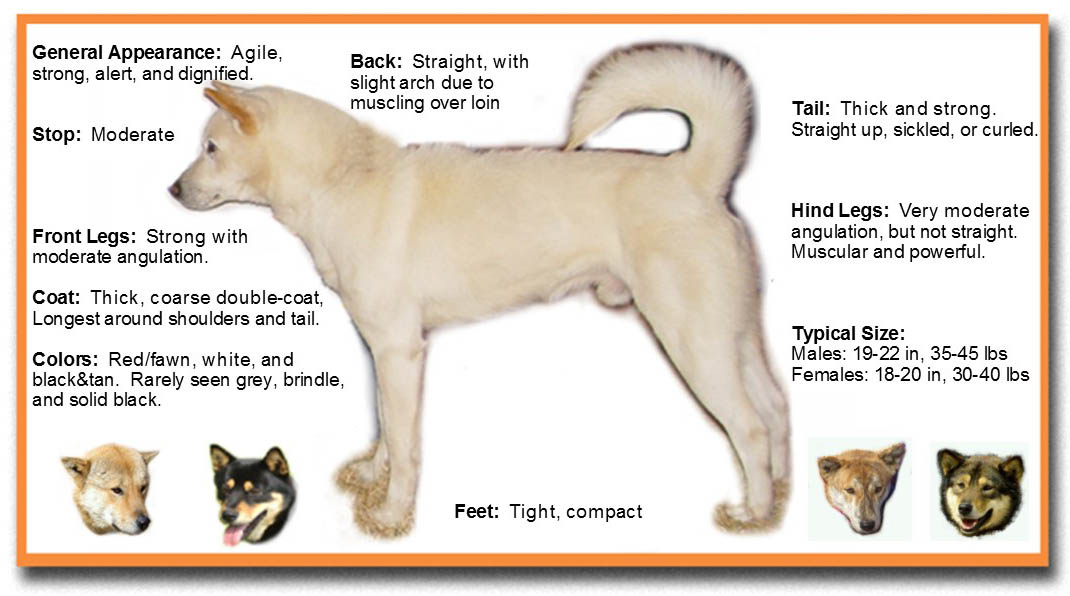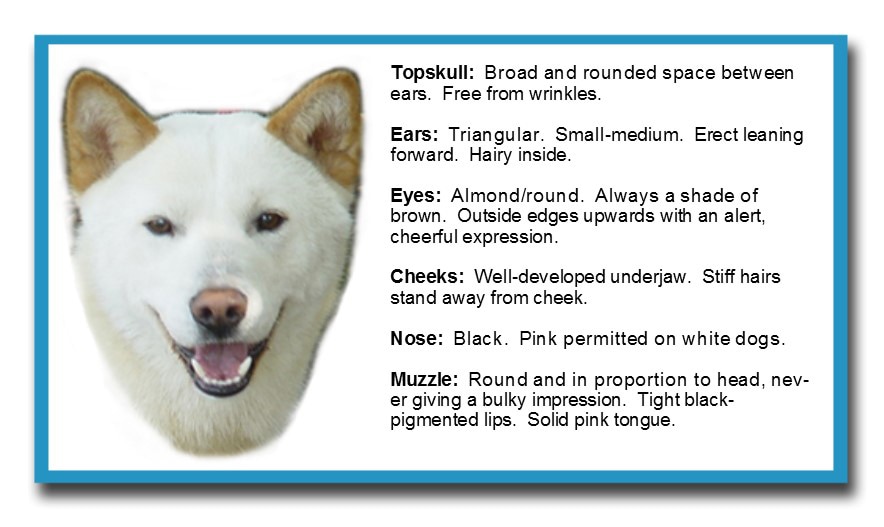Introduction to the Korean Jindo Dog
|
The Korean Jindo Dog originates from an island located off the southwest coast of South Korea. The breed name is taken from the name of the island, Jindo.
The dogs lived unrestrained on the island alongside their owners for thousands of years to develop into a medium-sized, natural breed with renown hunting abilities. The Korean Jindo Dog is noted as an independent hunter, a discerning home guardian, and a loyal companion. In Korea, approved Korean Jindo Dogs within the island are designated as Republic of Korea Preservation of Cultural Assets Act No. 53 (or simply called Korea Natural Treasure #53). Internationally, they are Federation of Cynologique Internationale Standard No. 334. In the United States, they are recognized by the United Kennel Club (1998) and entered into the American Kennel Club - Foundation Stock Service (2008). |
At a Glance
Brief List of Traits
- Bonds deeply to its chosen master. Re-homing is possible, but time to bond varies on how the previous owner treated the dog, how the new owner treats the dog, and the individual personality of the dog.
- Aloof with strangers. Dislikes physical restraint by strangers.
- Strong hunting instincts reflective of its origins. Some can learn to be discerning between family pets/livestock vs. intruding prey.
- Highly developed sense of territory. Likes to explore and expand upon its territory despite the presence of barriers.
- Discriminating watchdog, not barking without just cause.
- Clean and fastidious. Housebroken easily. Healthy dogs have low doggie odor except when the dog is shedding twice a year.
- Courage balanced with high intelligence.
- Learns commands easily when a rapport exists between owner and dog, however reliability varies due to independent nature.
- Keenly observant to family hierarchy and order. Not prone to counter-surf or dig through trash when in an appropriate home.
- Dominant among dogs at home. Tendency towards same-sex aggression. On neutral territory, does not instigate fights unless personal space is invaded or directly challenged.



